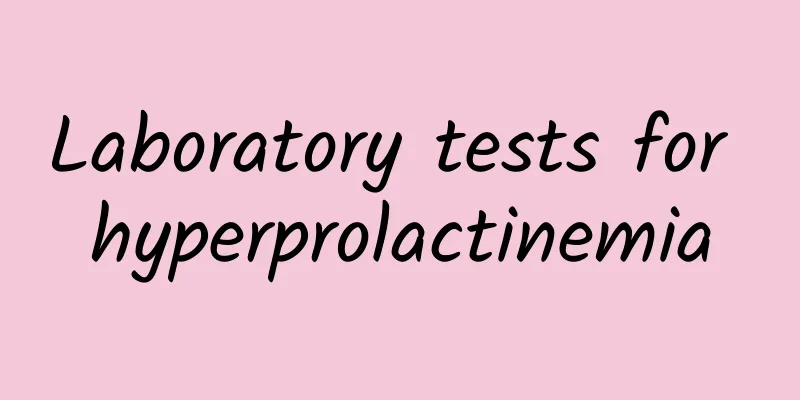Does painless abortion cause great harm to the body?

|
Painless abortion does cause harm to the body, but the extent varies from person to person and needs to be treated with caution. 1. Risk of infection: Although painless abortion can reduce pain with the help of anesthesia, the operation itself still has the risk of infection. During the operation, medical equipment will enter the uterine cavity. If it is not thoroughly disinfected or improperly operated, it is easy to cause infection. Infection will not only cause short-term discomfort, but may also cause more serious gynecological diseases and affect future fertility. 2. Endometrial damage: Uterine cavity operation is a key step in painless abortion. The doctor will use instruments to penetrate deep into the uterine cavity and suck out the embryo and decidua through negative pressure suction. Although this process seems simple, the damage to the endometrium cannot be ignored. The endometrium is where the embryo implants. Frequent damage may cause the endometrium to become thinner, affecting the ability to become pregnant in the future. 3. Postoperative adhesion: After painless abortion, some women may experience endometrial adhesion. This is caused by trauma or infection during the operation. Adhesion can lead to symptoms such as irregular menstruation and dysmenorrhea, and in severe cases, it can also affect reproductive function. The treatment of adhesion requires another surgery, which causes secondary damage to the body. 4. Psychological impact: Although painless abortion reduces physical pain, the psychological trauma cannot be ignored. Many women experience anxiety, depression and other emotional problems after abortion. Psychological recovery requires time and support. It is recommended that women seek psychological counseling or communicate with relatives and friends after abortion to relieve negative emotions. 5. Postoperative recovery: After painless abortion, the body needs some time to recover. Pay attention to rest after surgery, avoid excessive fatigue and strenuous exercise, maintain good eating habits, supplement nutrition, and enhance immunity. Avoid sexual intercourse within one month after surgery to prevent infection. At the same time, regular check-ups are required to ensure that the body has returned to normal. 6. Contraceptive measures: Although painless abortion is a way to solve the problem of unwanted pregnancy, it is not the best choice for contraception. Frequent abortions are very harmful to the body. It is recommended that women take effective contraceptive measures in their daily lives to avoid unwanted pregnancies. Common contraceptive methods include contraceptive pills, condoms, intrauterine devices, etc. Choose a method that suits you and protect your health. Although painless abortion has made great progress in technology, it still causes harm to the body. When facing an unexpected pregnancy, female friends must weigh the pros and cons and choose the method that is most beneficial to their body. At the same time, they should strengthen their awareness of contraception and protect their health. |
<<: How many months will ectopic pregnancy have symptoms
>>: How to relieve menstrual pain
Recommend
Unclean sexual life is the main cause of mild cervicitis
Cervicitis is a disease with a relatively high in...
What are the symptoms of cervicitis in women? How can women prevent cervicitis in their daily lives?
Many female physical diseases can be seen from le...
Which is less harmful to women, medical abortion or surgical abortion? There are three fundamental differences between medical abortion and surgical abortion.
Whether it is surgical abortion or medical aborti...
Mandatory labeling of beef products to be implemented in batches starting from the 12th
American beef containing ractopamine is expected ...
Is it difficult to maintain exercise habits? Start by walking a little more every day
Everyone knows that exercise is good, but they do...
Treatments for irregular menstruation
Treatments for irregular menstruation: Irregular ...
What are the symptoms of vaginitis?
What are the symptoms of vaginitis? Vaginitis is ...
Labor becomes exercise! 4 ways to "sweep" away excess fat
Life is too busy to have time for exercise, and a...
Five points to determine whether you have uterine fibroids symptoms
What are the symptoms of uterine fibroids? In cli...
What is a menstrual belt?
Menstrual belts are actually a little helper for ...
Feeling depressed and unhappy? Experts: Swimming has meditative and healing qualities that can help overcome grief and feel more peaceful
Swimming may give you a sense of tranquility, whi...
The most effective treatment for uterine fibroids. Are the drugs for uterine fibroids slow to take effect?
What is the most effective way to treat uterine f...
What are the current treatments for pelvic inflammatory disease?
Patients with pelvic inflammatory disease all kno...
So warm! Drink the mature red-feathered chicken soup
The autumnal equinox has passed and the weather i...
Women who smoke may have an increased risk of ectopic pregnancy
In the past 20 years, the incidence of ectopic pr...









